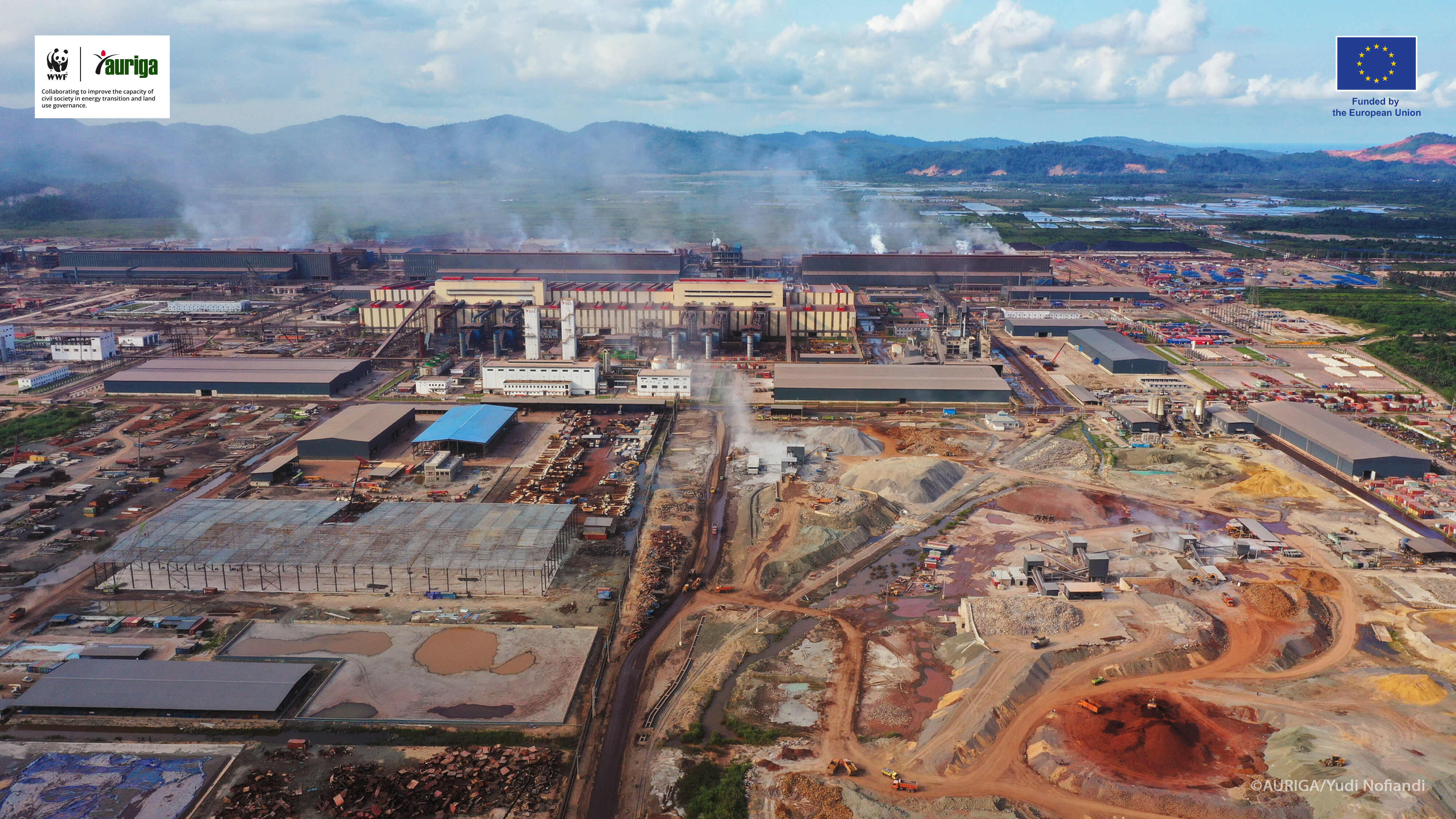
Deadline for submission: 1 Aug 2025

Since 2014, the nickel mining industry in Indonesia has grown rapidly, in line with the mineral downstreaming policy and smelter construction in various regions, especially Central Sulawesi and Southeast Sulawesi. There are currently 345 nickel mining licenses (IUP) covering nearly 1 million hectares, with more than 478 thousand hectares remaining forested. This activity not only has the threat to lead to massive deforestation but also threatens 26 conservation units covering 452 thousand hectares located within nickel deposit areas. In the midst of the global green transition, Indonesia faces a paradox: increasing pressure on forests, coastal areas and local communities due to the massive and uncontrolled expansion of the nickel mining industry.
Mining, particularly nickel, contributes significantly to national export earnings and gross domestic product (GDP), particularly from the downstream industry sector such as smelters. However, this fiscal contribution is often not followed by effective environmental and social regulations. Many mining areas lead to ecosystem damage, social conflicts, and the loss of ecological functions that are more valuable in the long run. The argument that mining absorbs a lot of labor needs to be looked at critically. In many cases, local labor is only absorbed at the level of unskilled work, while technical and managerial positions are filled by workers from outside the region. In addition, jobs in the mining sector are unsustainable, dependent on the life of the mine and often end in layoffs with no clear recovery of the local economy.
Nickel mining has drastically altered the landscape, from forest clearing, soil dredging, construction of mining roads, to the creation of waste ponds. In Central and Southeast Sulawesi, deforestation for mines and smelters has had a direct impact on flash floods, landslides and river sedimentation. Satellite and field photos show how once-green areas have turned into barren wastelands full of red dust.
Beyond landscape change, mining often sacrifices the management areas of indigenous and local communities that are sources of food, water and culture. There are many cases of eviction without a process of free, prior and informed consent (FPIC). Social impacts include agrarian conflicts, loss of livelihoods, and marginalization of women and vulnerable groups. Ironically, people who reject mining are often criminalized.
Currently, around 80% of Indonesia's nickel deposits threaten the habitat of 18 iconic animal species, including anoa, tarsier, maleo and hornbills. In fact, 29% of Key Biodiversity Areas (KBAs) and 11% of Important Bird Areas (IBAs) are located within nickel areas. This unfettered mining expansion is accelerating the extinction of endemic species and disrupting the delicate balance of tropical forest ecosystems.
The forestry and palm oil sectors, although also problematic, have started to implement various sustainability-based governance schemes such as the Timber Legality Verification System (SVLK) and ISPO/RSPO in the palm oil sector. In addition, there are area-based approaches such as High Conservation Value (HCV) and High Carbon Stock (HCS). In contrast, the mining sector is still far behind in terms of transparency, accountability and protection of high ecological value areas.
Some countries such as Canada and Australia have implemented stricter sustainable mining standards, including restrictions on mining in disaster-prone areas, conservation areas, indigenous territories and buffer zones. They also have public consultation systems and fairer benefit-sharing mechanisms. In the Philippines, some areas have also been designated as No Mining Zones to protect sensitive ecosystems.
The concept of No-Go Mining Zones (NGZ) is not a new concept, but an affirmation of the protection of areas that have been regulated in various national regulations. Five categories of areas that deserve to be designated as NGZs include:
Unfortunately, the implementation of NGZs is still weak due to the dominance of industrial interests. Therefore, it is important to build participatory NGZ maps and strengthen the capacity of local actors-including universities, communities, and civil society organizations-to document, monitor, and advocate for the protection of these critical areas.
Therefore, through "Enabling Civil Society's contribution to Prosperous, Fair and Sustainable Development in Energy Transition and Sustainable Land Use" Project Auriga Nusantara together with WWF with the support from the European Union seeks to support local civil society organizations to play a significant role in the identification of important biodiversity areas as No-Go Mining Zones.
This FSTP program has a dedicated focus on local areas with a high threat of land use change due to the expansion of nickel and coal mining, oil palm plantations and timber plantations. CSO applicants must be based in four provinces prioritized by Auriga Nusantara and WWF-Indonesia: Jambi, Central Kalimantan, Southeast Sulawesi, and/or Central Sulawesi. In addition, other conditions that must be complied with include the following:
Apart from the requirements above, WWF-Indonesia & Auriga will also carry out an assessment based on:
WWF-Indonesia & Auriga will announce the recipients of the grant funds to be funded for 6 months with the maximum amount IDR 200.000.000. It is estimated that the grant will start around late early August 2025.
The Call for Proposal process will go through the following steps:
Proposal templates are here: narative dan budget.
Full Proposal can be sent to email address: hilman@auriga.or.id with and copy/cc to: info@auriga.or.id dan Ari Moch, Arif (arif@wwf.id)